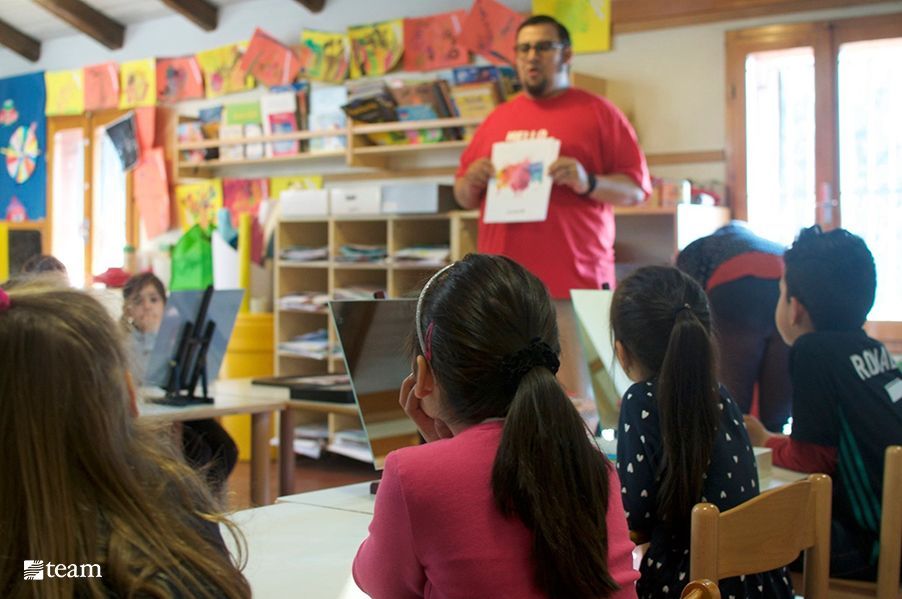There are more slaves in the world today than there were during the American Civil War. Eighty percent are women — half are children.
Some slaves are trafficked for manual labor, but most are forced into underground sex work. They suffer unspeakable physical and psychological torment. And many don’t come out alive.
We believe God’s people must break cycles that keep the vulnerable oppressed. So, we invite you to pray with us this month for human trafficking victims.
Pray against the systems that keep them oppressed. And pray for healthy, sustainable solutions that will bring an end to slavery in this world once and for all.
Sign up here to get the new Prayer Focus in your inbox each month.
1. Pray that victims of human trafficking will not blame themselves for their situation.
Gabriella’s boyfriend was a “nice guy.” So when he asked her to move to another country for a promising “job opportunity,” she jumped at the chance. Many women would have. After all, she was a single mother who had children depending on her income.
But the job offer was a trap. And now, Gabriella is struggling to break free from forced sex work.

Pray for the women who face the shame of their circumstances, that they will come to accept the forgiveness of our loving Father! Photo by TEAM
TEAM missionary Rachel Zuch says that even though Gabriella fits the UN’s definition of a trafficking victim , that’s not how she views herself.
“She believed him. She made the decision to come to Western Europe with him,” says Rachel. “She is full of shame, but she doesn’t see herself as a victim.”
In many countries, it’s nearly impossible for single women and minorities to get jobs that pay their bills and feed their children. So they make easy targets for charming traffickers. This is especially true in places where a high percentage of the population lives below the poverty line.
Pray that the millions of women like Gabriella will experience the pure love of the Father. Pray that they will forgive themselves and find meaningful employment that doesn’t put them in harm’s way.
2. Pray that more people will know how much God values the marginalized.
Abuse of stigmatized people groups runs rampant in many countries. For example, women and children are viewed as property in many rural areas of Chad.
“Child brides is a form of human trafficking and is an acceptable part of many cultures in Africa,” says TEAM missionary Anne Hoyt.
Anne works with vulnerable Chadian women (i.e. abuse victims, prostitutes and former sex workers, victims of childhood trauma, etc.).
Oftentimes, young girls in Chad are sold by their families to adult husbands. They are sometimes younger than 12. Their young bodies then undergo various forms of sexual and physical trauma.
If they are not sold by a family member, then they are in real danger of being kidnapped and sold by strangers.
This creates an entire population of grown women who live with severe PTSD and low self-esteem.
Pray that God’s people will reach out to these abused and exploited individuals in love and kindness. Pray that they will then see their own value.
3. Pray for governmental change.
One reason human trafficking is so common is that governments look the other way. Policymakers often don’t show enough concern for human trafficking to enact real change.
In South Asia , deep political corruption affects trafficking. Especially when the trafficking is international. Over-the-border trafficking yields more money than national trafficking does.
One TEAM missionary is working to prevent trafficking in South Asia. She says that since it has become such a lucrative line of work, many politicians and law enforcers have become traffickers themselves.
“We need governmental change, better collaboration between parties working on trafficking issues, more focus on prevention and more focus on breaking the demand from the outside,” she says. “If there was no demand for these things, there wouldn’t be trafficking.”
Pray that more international leaders will gain a deeper understanding of human trafficking. Pray that they will act in the interest of human lives instead of economic gain.
Thank you for partnering with us in prayer! Click here to get a print-out of this month’s Prayer Focus requests and praise reports.
*Names changed.




















